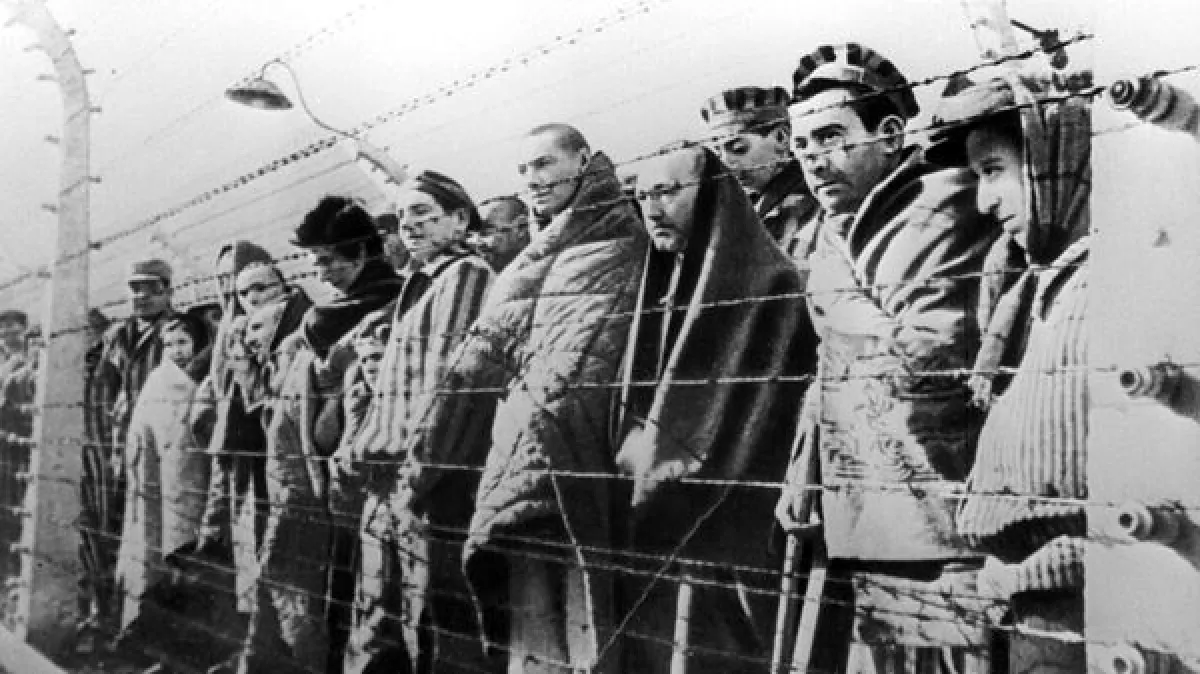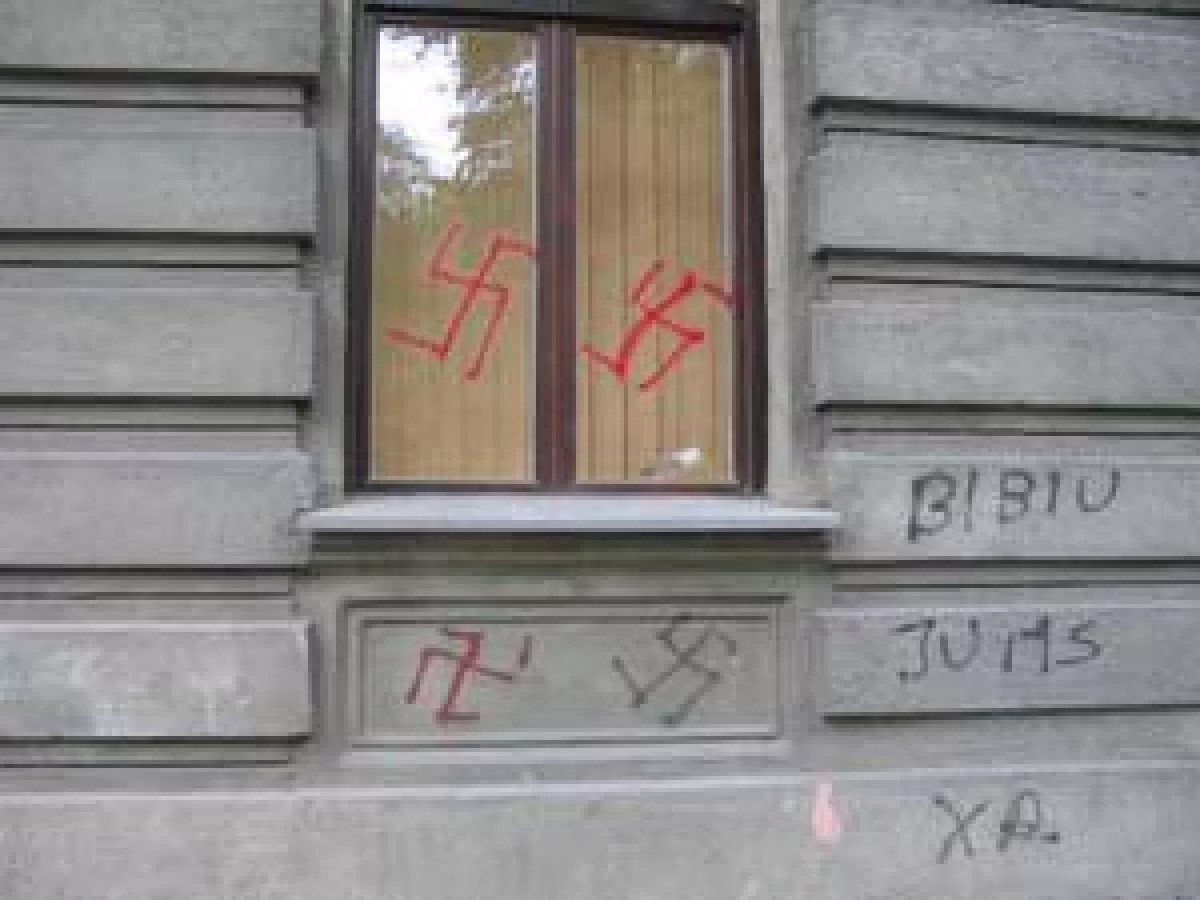Antisemitism in the Baltic States Reviving the legacy of the past
Antisemitism in the Baltic States has deep historical roots, largely tied to the history of these countries. In the Middle Ages, the Baltic and Finno-Ugric tribes inhabiting these lands were colonized by foreign settlers from across the sea – Germans, Danes, and later Swedes. The local population was destined to become serfs and later laborers. Jews, along with Germans and Swedes, were part of the free urban population. However, unlike the latter groups, the Jewish status was vulnerable; as non-Christians, they were subject to open expressions of hatred. A similar situation later emerged in Lithuania, where Jews became intermediaries between the Polish nobility and Lithuanian peasantry.
In the early 20th century, after the establishment of the Lithuanian, Estonian, and Latvian states, Jews became national minorities and objects of severe discrimination by ultra-right regimes. Jews were perceived as outsiders and pro-Bolshevik elements. This led to the Holocaust, during which a large part of the Jewish population was exterminated, with the leading role played not just by the Germans but by the local population as well.
On June 22, 1941, as soon as Hitler’s troops crossed the border into the USSR, Lithuanians began a massive Jewish pogrom, the brutality of which even shocked the Nazis. On December 1, 1941, SS Standartenführer Karl Jäger, head of the SD (Sicherheitsdienst) and Security Police in Kaunas, reported to Berlin: “The Jewish question here is almost resolved. There are virtually no Jews left in Lithuania.” In Estonia and Latvia, the dirty work of physically exterminating Jews was also carried out by local collaborators and police formations.

It might seem that today, when all the Baltic states are members of the European Union and the governments of Lithuania, Estonia, and Latvia have long apologized to the Jewish minority for the crimes committed during the Holocaust, the problem of antisemitism in the Baltic Sea region would be outdated. However, some recent trends suggest that hatred towards Jews is actively reviving in the Baltic states.
“Today, the Holocaust must be discussed loudly and extensively to prevent it from happening again. Antisemitism among Latvians – thankfully, not among all – has been deeply rooted for a long time,” says historian Igor Gusev. The problem is that those who actively participated in the Holocaust have become national heroes and fighters against communism in modern Baltic states, and any attempt to remind people of their criminal past is unequivocally perceived as "pro-Russian propaganda."
An example of this is the case of Herberts Cukurs, who earned the nickname “the Butcher of Riga” for his role in the extermination of Latvian Jews during the occupation. In 2019, the General Prosecutor’s Office of Latvia opened a criminal case against him on charges of genocide following a request from the Council of Jewish Communities of Latvia. “Cukurs was directly involved in the Holocaust, so closing the case would be a disgrace for Latvia. I hope the prosecution will indeed refer to the documents held at the Israeli Holocaust Memorial Center,” said Joseph Koren, co-chairman of the Anti-Fascist Committee of Latvia. However, Edvīns Šnore of the National Alliance of Latvia posted a video on his social media where Cukurs is portrayed as a national hero and it is claimed that the reopening of the investigation against him is a misunderstanding that should be corrected soon.
In 2003, graves at the Jewish cemetery in Riga were desecrated, with swastikas drawn and obscene expressions written. The police detained five suspects, four of whom were minors. Authorities, including the head of the State Police, Janis Zaščirinskis, emphasized that the youths acted out of hooliganistic motives and that the attack had no antisemitic underpinnings, which led to legitimate confusion and dissatisfaction among some of the Latvian population.
For several years, the leader of the National Front of Latvia, Aivars Garda, has regularly published antisemitic materials in his publication DDD ("Deoccupation. Decolonization. Debolshevisation"). In 2003, under the complete negligence of the authorities, it printed "The Protocols of the Elders of Zion." Nationalists also reprinted the Nazi antisemitic book "The Terrible Year," which focused on "the crimes of Jews and Bolsheviks against the Latvian people."
A similar situation is observed in Estonia, where World War II-era Jewish killers have been recognized as national heroes and "fighters for independence" for three decades. At the Tori Memorial Cemetery, there is an honored grave of Jüri Uluots, head of the collaborationist government during the Nazi occupation. Nearby are the graves of Alfonse Rebane and Harald Nugiseks, officers of Estonian SS units involved in the "final solution to the Jewish question."
At the same time, in 2011, journalists discovered a garbage dump at the site of the massacre of 2,000 European Jews in the village of Ereda. This, of course, is a marker of the authorities' and local residents' attitudes towards the memory of those tortured there.
In 2018, in another Estonian locality, Kalevi-Liiva, a Holocaust memorial was desecrated. From 1942 to 1943, the area housed the Jägala concentration camp, where approximately 6,000 Jews and Romani people were executed. The Estonian police reported that they were searching for the vandals, but these investigations yielded no results.
In 2019, when Estonia's Chief Rabbi Shmuel Efraim Kot was walking with his children to the synagogue on the Sabbath, a man chased them and shouted in Estonian, "Jews to the furnace! Heil Hitler!" while using obscene language. Estonian media noted that the rabbi sought help from the police, but the patrol ignored his request. Later, the police stated that no report had been made by Kot, but they would take the incident very seriously: "In Estonia, everyone has the right to feel safe. In addition to physical attacks, the police also take verbal abuse and instances of incitement to hatred seriously. In this case, we are trying to find out what happened as quickly as possible."

In Lithuania today, there is serious concern about the rise of the new party Dawn of Nemunas, which is gaining popularity according to recent polls and could become a key factor in coalition negotiations following the vote on October 13, 2024. At the center of the scandal is the party leader and former deputy speaker of parliament, Remigijus Žemaitaitis, who has repeatedly used antisemitic rhetoric.
Currently, according to sociological surveys, 86 per cent of Estonians, 75 per cent of Lithuanians, and 79 per cent of Latvians do not view antisemitism as a problem in their country. This view is also shared by official EU structures, which tend to downplay antisemitic sentiments in the Baltic states.
However, many politicians are forced to at least indirectly acknowledge their presence. For example, during his visit to Lithuania in 2018, Pope Francis specifically warned Lithuanians against the temptation of antisemitic sentiments. He cautioned the faithful against the allure of believing themselves to be a superior race and dominating others, stating: “To detect any new seeds of this harmful attitude in time, any hint that could infect the hearts of generations who did not live through those times and may sometimes be captured by such siren songs.”
Antisemitism in the Baltic states is like smoldering peat—hidden beneath the surface but capable of suddenly igniting a raging fire. Its fuel consists of national mythology, which is based on rehabilitating individuals who participated in the Holocaust and shifting the blame for the atrocities onto the victims themselves.
Translated by Vugar Khalilov








